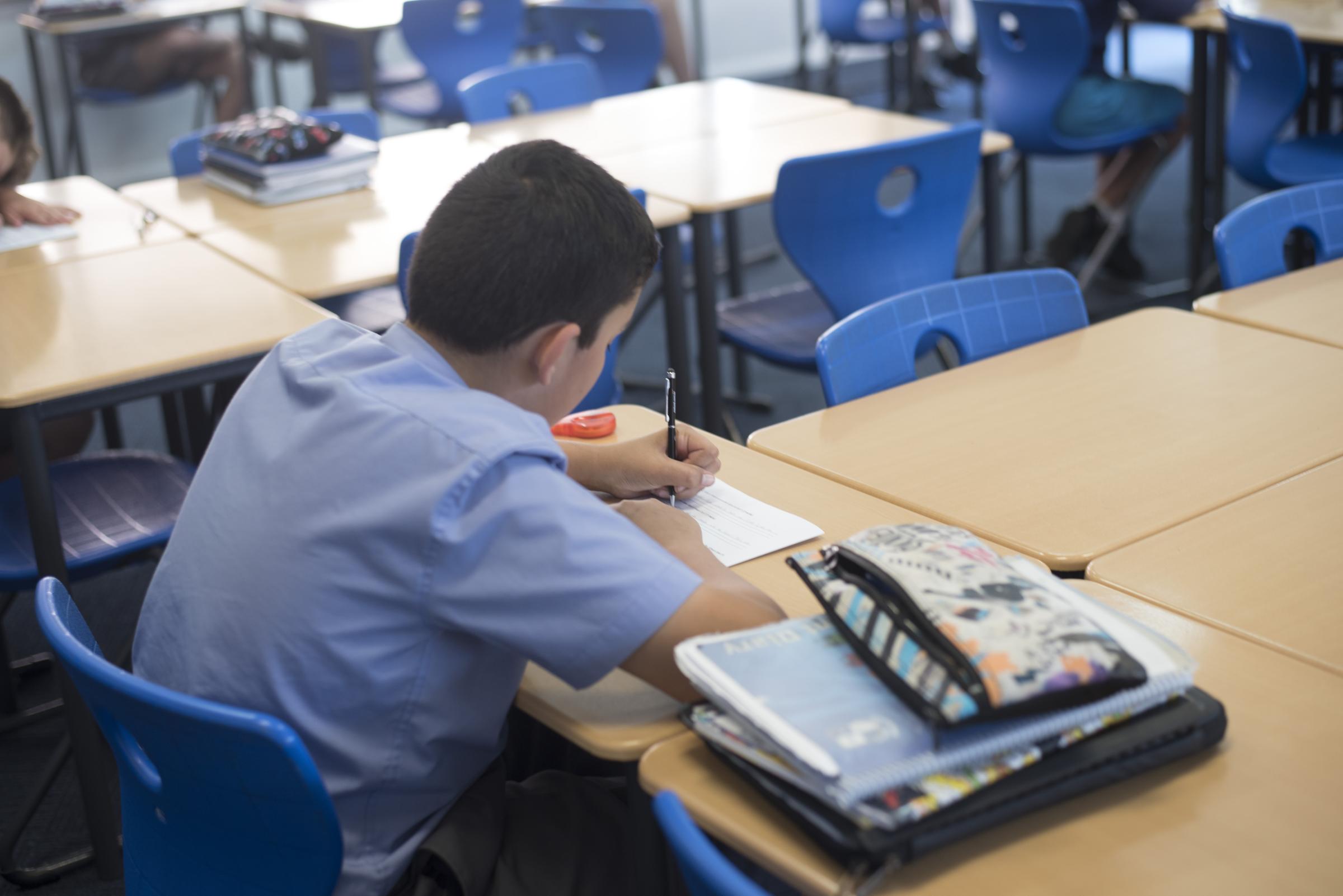Dean of Studies

FROM: “I can’t do it” TO: “This is a challenge to overcome”
So often, when we are confronted with new concepts and knowledge to learn, the first reaction is to think, “this is too hard”. The challenge for all of us as learners is how to build and maintain motivation to tackle new challenges and overcome obstacles. For students at school, this may be an even greater challenge as they have not yet experienced the success that comes from hard work and perseverance.
Last year, one of the most interesting books that I read was by a NASA Astronaut, Scott Kelly, that was titled, 'Endurance: A Year in Space, A Lifetime of Discovery'. Scott has the unique achievement of having spent a whole year on the International Space Station, and has a twin brother that is also an accomplished astronaut with NASA. Scott’s story details his upbringing and how he went from being a ‘below average’ student to becoming a naval astronaut and his acceptance into the NASA program. Scott did not have an easy road of access and privilege laid out for him, and he had to build his grit and develop a mindset focused on study to achieve his goals, often sacrificing the temptations before him to take the easy road.
“My memories of school are largely of being trapped in a classroom, bored out of my mind and always wondering what was going on outside. For my entire K-12 education, I pretty much ignored my teachers and daydreamed. I didn’t know what I wanted to do, just that it would be exceptional, and I was pretty sure it had nothing to do with history, grammar, or algebra. I couldn’t concentrate on any of it anyway. I was reading way behind grade level when I was seven, so my parents asked my maternal grandmother, who was a special education teacher, to evaluate me and try to help. After working with me for a few days, she gave up and declared me hopeless,” (p. 39).
Once he realised his goal of becoming a naval aviator and ultimately an astronaut, his mindset changed. From scraping in to the University of Maryland, to having his admission rejected to US Merchant Marine Academy, forcing himself to persevere with study of subjects that were baffling in high school (calculus and trigonometry), to acceptance into the State University of New York Maritime College, to the ROTC Navy scholarship and active service, to flight school and ultimately to NASA.
And so how do we learn from this and discover ways to change our mindset? Professor Carol Dweck, a psychologist and researcher from Stanford University has studied and written about the growth mindset, and establishing a framework for maintaining this in a learning context (eg. school and academic studies). For our students, it starts with two statements that can become a new study mantra:
“This is a challenge to overcome” (instead of “this is too hard”)
and
“Doing hard things is exercise for the brain” (just like fitness training for my muscles, my brain will get stronger with practice).
The next practical step is to seek assistance from your teacher(s) with setting high expectations for personal improvement and a concrete plan for growth with each step planned and prepared, as you simply cannot have one without the other. Not everyone of course is destined to fly into space, however, Scott’s example of setting a goal, practising self-sacrifice and challenging yourself to overcome your (perceived) obstacles, can launch you forward into life experiences that may bring joy and fulfilment.
Semester One Examinations (Year 10)
The Semester One Examinations for Year 10 students will commence on Friday 8 June, and all Year 10 students are reminded of the following expectations:
- Students are to attend the College for the Examinations ONLY.
- Students are to return home or use the Cannington Library to study at all other times.
- Any student with both a morning and afternoon examination is permitted to remain at St Norbert College and use the Library for study purposes.
- In the event of an illness or medical concern, a parent or guardian must telephone the College and a medical certificate or note must be provided when the student returns to the College.
INSTRUCTIONS FOR EXAMINATION CANDIDATES
- Candidates should aim to arrive twenty (20) minutes before the starting time.
- Please be aware that students who qualify for extra time must commence the examination ten (10) minutes before the scheduled start time.
- Bags must be placed in lockers and will NOT BE ALLOWED in the Examination venue.
- Students must remain silent when they enter the Examination venue.
- Ensure that all drinks are in clear plastic bottles with all labels removed.
- Only water is allowed in drink bottles
- Mobile phones will NOT be permitted under any circumstances.
- Any student with a mobile phone must turn the phone off and place it in the box provided on the supervisor’s desk.
- Students will be provided with sufficient time to check their equipment (when necessary).
- Calculators and notes for Mathematics examinations may require extra preparation time.
- Mathematics notes are not to be folded, creased or glued together.
- A student is permitted two A4 (doubled-sided) sheets as a maximum.
- Use of the toilet
- Toilet visits are only permitted AFTER the first hour.
- Toilet visits are NOT permitted during the final thirty (30) minutes.
- Only ONE toilet visit should be necessary during an examination.
- Toilet visits are not a right and should ONLY be used as an emergency.
- When Reading Time commences, no writing is permitted during this period.
At the conclusion of Reading Time, candidates will be informed that the Working Time has commenced.
Mr R Dowling (Dean of Studies)
